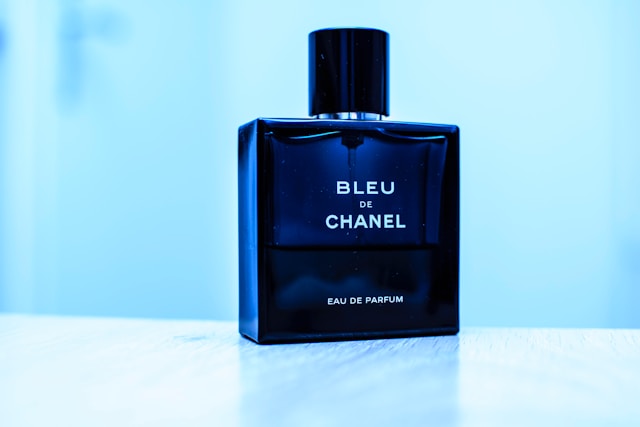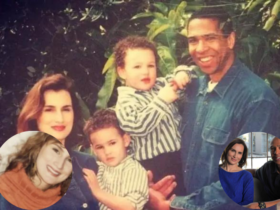The kufi is more than just a headwear; it is a symbol of cultural identity, spiritual significance, and a fashion statement across the globe. Whether you’ve encountered it in religious settings, cultural celebrations, or simply as a stylish accessory, the kufi holds a unique place in the world of headwear. In this comprehensive guide, we will delve into the origins, types, and cultural meanings of the kufi, exploring how it is worn and why it remains significant today.
What is a Kufi?
A kufi is a brimless, rounded cap worn primarily by men in various cultures, particularly in African, Islamic, and African American communities. It is often associated with religious practices and cultural identity, making it much more than just a piece of clothing.
The History and Origins of the Kufi
The kufi has deep historical roots, with its origins tracing back to ancient Africa and the Islamic world. In many African cultures, the kufi hat is worn by men as a sign of respect, wisdom, and maturity. It is also a symbol of status and heritage, with intricate designs and patterns often reflecting the wearer’s tribal or regional background.
In Islamic culture, the Muslim kufi is worn as a religious head covering, signifying piety and devotion. It is often seen during prayers and religious ceremonies, where it serves as a reminder of humility before God.
Types of Kufi Hats
1. Traditional Kufi Hat
The traditional kufi is usually made from cotton or wool and features simple, solid colors. It is a staple in many African and Islamic cultures, known for its comfort and versatility.
2. Kente Kufi Hat
The kente kufi hat is made from kente cloth, a type of silk and cotton fabric native to the Akan ethnic group of Ghana. This kufi is vibrant and colorful, often worn during special occasions like weddings, ceremonies, and cultural celebrations.
3. Embroidered Kufi Cap
An embroidered kufi cap features intricate designs and patterns, making it a more decorative option. These kufis are often worn during significant religious or cultural events, adding a touch of elegance and distinction to the wearer’s outfit.
4. Leather Kufi
The leather kufi is a more modern adaptation, popular in urban settings. It combines traditional elements with contemporary style, making it a versatile accessory that can be paired with both casual and formal attire.
The Meaning Behind the Kufi Hat
The kufi hat meaning varies across cultures but generally symbolizes respect, knowledge, and spirituality. In African American communities, wearing a kufi can be a statement of pride in one’s heritage and a connection to African roots. In Islamic culture, it represents faith and devotion, often worn during religious practices and celebrations.
How to Wear a Kufi
Wearing a kufi is simple, but there are a few tips to keep in mind to ensure it sits comfortably and looks stylish:
- Fit: The kufi should fit snugly on your head without being too tight. It should cover the crown and sit just above your ears.
- Style: Choose a style that complements your outfit and the occasion. For formal events, an embroidered or leather kufi might be appropriate, while a traditional cotton kufi works well for everyday wear.
- Occasion: Consider the cultural and religious significance of the kufi when choosing when and where to wear it. While it’s a versatile accessory, understanding its meaning can help you wear it with respect and intention.
The Kufi in Modern Fashion
In recent years, the kufi has transcended its traditional and religious roots to become a fashionable accessory in the global fashion scene. Designers have incorporated the kufi cap into their collections, blending traditional elements with contemporary designs. Celebrities and influencers have also embraced the kufi, wearing it as a symbol of cultural pride and a unique fashion statement.
The Role of the Kufi in Islamic Practices
The Muslim kufi holds significant importance in Islamic practices. It is commonly worn during prayers, religious gatherings, and festivals like Eid. The kufi serves as a sign of humility and devotion, symbolizing the wearer’s commitment to their faith.
Cultural Celebrations and the Kufi
In African and African American communities, the kufi is often worn during cultural celebrations and rites of passage. Whether it’s a wedding, a naming ceremony, or a community gathering, the kufi plays a central role in marking these important life events.
The kente kufi hat is particularly popular during these celebrations, with its vibrant colors and intricate patterns adding to the festive atmosphere. Wearing a kufi during such events is not only a nod to cultural heritage but also a way to honor tradition and express pride in one’s roots.
FAQs About Kufi
1. What is a kufi?
A kufi is a brimless, rounded cap worn primarily by men in African, Islamic, and African American cultures, symbolizing respect, spirituality, and cultural identity.
2. What is the meaning of a kufi hat?
The kufi hat meaning varies, but it generally represents wisdom, respect, and religious devotion. It is often worn during religious practices, cultural celebrations, and as a statement of cultural pride.
3. How do you wear a kufi?
A kufi should fit snugly on your head, covering the crown and sitting just above the ears. Choose a style that complements your outfit and the occasion.
4. What is a kente kufi hat?
A kente kufi hat is made from kente cloth, a vibrant, colorful fabric native to Ghana, often worn during special occasions like weddings and cultural celebrations.
5. Can a kufi be worn casually?
Yes, a kufi can be worn casually. Traditional cotton kufis are versatile and can be paired with everyday attire for a comfortable and stylish look.
6. What is the significance of the Muslim kufi?
The Muslim kufi is worn as a sign of faith and devotion, particularly during prayers and religious ceremonies. It symbolizes humility before God and commitment to Islamic practices.
Conclusion
The kufi is a symbol of cultural identity, spirituality, and fashion that has stood the test of time. Whether you wear it as a sign of faith, a connection to your heritage, or simply as a stylish accessory, the kufi carries with it a rich history and deep meaning. By understanding the significance behind the kufi, you can wear it with pride and respect, honoring the traditions that have shaped this unique piece of headwear.


















Leave a Reply
View Comments